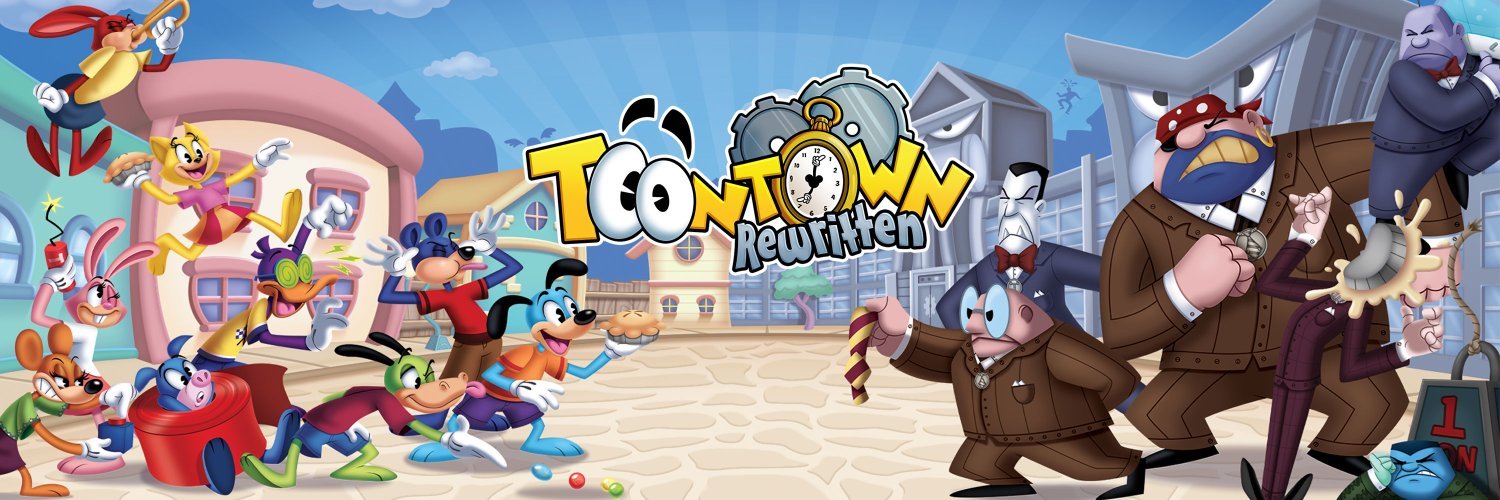The Unique Anti-Capitalist Journey of Toontown Online
By Stef Luthin
If you were a kid watching cartoons in the mid-2000s, odds are you saw commercials for the Disney MMORPG, Toontown Online. Highlighting its wacky gameplay - that included creating your own zany animal avatar and throwing cream pies at robots - the ad spot ended with an inspirational, action-prompting question: “Are YOU toon enough?”
Such marketing toward children, while commonplace, is ethically questionable at best. Any child excited to enter the “Tooniverse” was soon hit with the reality that, to play the full game, you had to pay. The business model of Toontown Online was a subscription-based one: for a monthly fee of $9.95, you had complete access to every aspect of the game. And while you still could play for free, you were unable to progress past a certain (and very limited) point in the game’s storyline.
Such a penny-pinching reality, while frustrating to adults and youths alike, is to be expected from a video game. So what sets Toontown apart? The answer is simple.
Irony.
Sellbot cog building
And to understand why, we need to dive into the actual gameplay and plot of this MMORPG. On the surface, it’s loony toons spraying robots with seltzer bottles. But when you break down the themes and naming conventions, Toontown at its core is anti-capitalist and anti-establishment in nature. A kid probably has never heard of a telemarketer, ambulance chaser, or head hunter in real life. Yet these are just a few of the names of the villainous robots, called “cogs,” that are threatening to take away all the toons’ fun. Cogs in the machine both literally and metaphorically, these enemies wear business suits and turn colorful cartoon buildings into menacing gray office complexes.
Cogs are organized by their least to most strong into literal “corporate ladders” and separated into categories - Sellbot, Cashbot, Lawbot, and Bossbot - with the leaders of each being the VP, CFO, CJ (Chief Justice), and CEO, respectively. To progress throughout the game, you complete ToonTasks, unlock new goofy gags to attack the cogs, and attempt to take down those bosses as many times as possible. All while also participating in leisure activities as well, like adopting and caring for a pet, growing flowers, and playing mini-golf.
The different cog types
So, when The Walt Disney Company, one of the world’s largest multinational entertainment and media conglomerates, charges $10 a month for kids to play a game where they are essentially “taking down the man” - it’s hard not to chuckle. Disney IS the man. And the theme that they’re selling children, which is free-thinking and anti-business in nature, directly contradicts the brand’s goal to churn out content and money at a ridiculous pace.
But what’s even more fascinating than the invention and ironic concept of Disney’s Toontown Online… is its demise.
In 2013, Disney shut down Toontown. After a decade, the game’s business model was no longer financially rewarding, now with the invention of free-to-play mobile apps and those infuriating micro-transactions. In a statement, Disney said the company would be “shifting its focus to other online and mobile play experiences,” and generously gave players a few more months of gameplay before finally shutting off all of its servers that September.
Screenshot of Disney’s message to Toontown players
Just like that, the ten-year-old game that brought a wholesome community of robot-fighting toons together ceased to exist.
People that played the game from childhood into young adulthood felt especially betrayed. Disney had finally shown its true colors; of course they wouldn’t keep a struggling game around despite its devoted fans. That’s because Disney was a cog from the start. With gimmicky marketing that would be applauded by a Sellbot and a pay-to-play model that’d be lauded by a Cashbot, the company sucked the money out of households for years and then essentially took Toontown out back and shot it. The once goofy and exciting toontown.com now redirects to the charmless and corporate Disney.com, as if it never existed.
What Disney did not count on, however, was this silly game’s overarching theme leaving a real impact on players. Because now, the original Toontown fanbase is grown up - perhaps working a job, perhaps attending college - but still carrying around the message that Toontown so paradoxically touted. A message burnt so strongly in their hearts that they took things into their own hands.
Enter Toontown Rewritten, a free-to-play revival of Disney's Toontown Online maintained entirely by fans of the original, with absolutely “no subscriptions, advertisements, donations, or any other forms of revenue.” Funded out-of-pocket by an incredibly passionate and loving team, Toontown Rewritten is what Toontown Online was always meant to be. A place for people of all ages to chat, connect, and take down the capitalist machine, free of charge.





